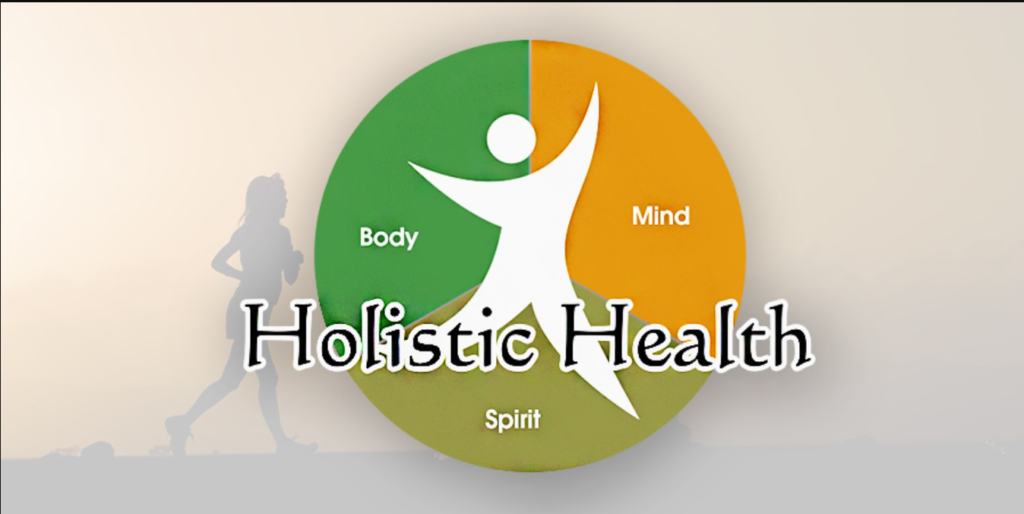Holistic health is more than just a buzzword; it’s a comprehensive approach to wellness that considers the entire person, including their physical, mental, emotional, and spiritual well-being. This method emphasizes the importance of understanding the interconnectedness of the mind, body, and spirit, and it seeks to promote optimal health by addressing all aspects of a person’s life. In a world increasingly recognizing the limitations of conventional medicine, holistic health offers a refreshing and inclusive alternative.
The Principles of Holistic Health
Holistic health is grounded in the principle of wholeness, which acknowledges that health and wellness are not merely the absence of disease but a state of complete physical, mental, and social well-being. The integration of mind, body, and spirit is central to this approach, with the belief that these elements are deeply interconnected and that imbalances in one area can affect the others. Prevention over cure is another key tenet, emphasizing the importance of maintaining health through proactive measures rather than merely treating symptoms as they arise.
Holistic Health Practices
Holistic health encompasses a wide range of practices, each aimed at nurturing different aspects of well-being.
Mind-Body Techniques
Mind-body techniques are foundational in holistic health, aiming to harmonize mental and physical states.
- Meditation: Practiced for centuries, meditation helps reduce stress, enhance concentration, and promote a sense of calm.
- Yoga: Combining physical postures, breathing exercises, and meditation, yoga enhances flexibility, strength, and mental clarity.
- Tai Chi: This ancient Chinese martial art focuses on slow, deliberate movements and deep breathing, promoting balance and serenity.
Nutritional Approaches
Nutrition plays a pivotal role in holistic health, with an emphasis on whole, unprocessed foods.
- Whole Foods Diet: Prioritizing natural, minimally processed foods ensures the body receives essential nutrients.
- Detoxification: Regular detoxes help eliminate toxins from the body, supporting overall health and vitality.
Physical Therapies
Physical therapies are integral to maintaining and restoring physical health.
- Chiropractic Care: Focuses on diagnosing and treating musculoskeletal disorders, particularly those affecting the spine.
- Massage Therapy: Helps relieve muscle tension, improve circulation, and promote relaxation.
- Acupuncture: An ancient Chinese practice that involves inserting thin needles into specific points on the body to balance energy flow and alleviate pain.
Mental and Emotional Well-being
Mental and emotional health are crucial components of holistic wellness.
- The Role of Mental Health in Holistic Wellness: Mental health affects all aspects of life, and maintaining a positive mental state is essential for overall well-being.
- Stress Management Techniques: Practices such as mindfulness, deep breathing exercises, and regular physical activity help manage stress effectively.
- Emotional Healing Practices: Techniques like journaling, therapy, and support groups provide outlets for emotional expression and healing.
Spiritual Health
Spiritual health involves finding purpose and meaning in life, which can significantly enhance overall well-being.
- Practices to Enhance Spiritual Health: Engaging in mindfulness, prayer, and spiritual rituals can deepen one’s connection to their inner self and the world around them.
Holistic Health and Modern Medicine
Holistic health doesn’t dismiss conventional medicine but rather complements it.
- Bridging the Gap Between Conventional and Holistic Medicine: Integrative medicine combines conventional treatments with holistic practices, offering a more comprehensive approach to health care.
- Benefits of an Integrative Approach: This combined approach can lead to more personalized care, improved outcomes, and enhanced patient satisfaction.
- Case Studies of Successful Integrative Treatments: Numerous case studies demonstrate the effectiveness of integrative treatments in managing chronic conditions and improving quality of life.
Health and Lifestyle
Lifestyle choices significantly impact holistic health.
- Tips for a Holistically Healthy Lifestyle: Simple changes such as maintaining good sleep hygiene, engaging in regular physical activity, and nurturing healthy relationships can make a big difference.
Holistic Health for Different Life Stages
Holistic health practices can be tailored to suit different life stages, ensuring optimal health throughout one’s life.
- Holistic Health for Children: Encouraging a healthy diet, regular physical activity, and emotional support sets a strong foundation for lifelong health.
- Holistic Approaches During Pregnancy: Practices like prenatal yoga, proper nutrition, and mindfulness can support a healthy pregnancy.
- Holistic Health for the Elderly: Gentle physical activities, social engagement, and mental stimulation help maintain health and vitality in later years.
Challenges and Criticisms of Holistic Health
Despite its benefits, holistic health faces challenges and criticisms.
- Common Criticisms and Misconceptions: Skeptics often question the efficacy and scientific basis of holistic practices.
- Addressing Skepticism: Providing evidence-based research and educating the public can help address these concerns.
- The Need for More Research and Validation: Continued research is essential to validate holistic practices and integrate them into mainstream healthcare.
Conclusion
Holistic health is a comprehensive approach to wellness that recognizes the intricate connections between mind, body, and spirit. By embracing holistic practices, individuals can achieve a balanced and fulfilling life. The future of holistic health looks promising as more people seek integrative approaches to well-being, blending the best of both conventional and holistic medicine.
Frequently Asked Questions
What is the difference between holistic health and conventional medicine?
Holistic health considers the whole person and focuses on prevention and balance, while conventional medicine often targets specific symptoms or diseases.
Can holistic health practices replace conventional treatments?
Holistic practices can complement but not necessarily replace conventional treatments. It’s best to consult healthcare professionals for a comprehensive approach.
How do I start incorporating holistic health practices into my life?
Begin with small changes, such as incorporating meditation, improving your diet, and engaging in regular physical activity.
Are holistic health practices safe for everyone?
Most practices are safe, but it’s important to consult a healthcare provider, especially if you have underlying health conditions.
What should I look for in a holistic health practitioner?
Look for practitioners with proper credentials, good reviews, and an approach that resonates with your personal health philosophy.

